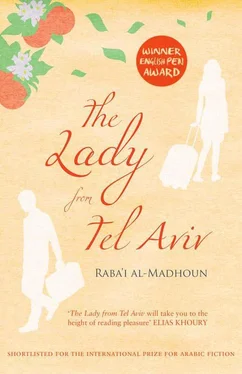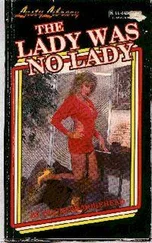The relatives continue to throng to the last bachelor pad whose sitting room, for this event, we have amply furnished with stuffed cotton mattresses and pillows for everyone to sit on. And meanwhile, my mother keeps repeating: ‘See, Walid. The son of Sofia, your father’s aunt, still has not bothered to come. Oh, he says he’s sorry, My son’s getting married. So what? Go marry off your son for all I care. Who could get mad at you for doing that? God help the man and help his bride. I hope the two of them give birth to a barnful of boys and girls.
‘But still, what’s so hard about coming over to greet your cousin? Couldn’t you at least come over before your son’s wedding to say hello to an old woman whose son has just returned? The bride’s not going to run away, is she? The earth isn’t going to open up and swallow her, is it? The wedding’s tomorrow — if he doesn’t come to see us, we’re not going to attend. It’s as simple as that. If someone doesn’t come to see you, it’s not right for you to visit them — no matter if all the kids in their family were getting married on the same day. Am I right, or am I wrong?’
My cousin Abul-Abd interrupts her. ‘Don’t be like that, Aunt. You know as well as I do what a pain a wedding can be. I married off five of my kids. Nowadays, people are so busy they don’t even have time to scratch their head when it itches.’
My mother is not convinced — she begins to complain about how there are others who have also not shown up. And she starts to rattle off their names one by one. And for each person on the list, she swears an oath that she is never going to speak to them again.
Emad tries to change the subject by bringing up an old joke — one so good, he swears, that he is sure I could not have heard it before. It is about an electronic device made in Korea, and an operation to implant it under my mother’s tongue. It was supposed to operate by remote control, but unfortunately, the device did not work so well. ‘I’ve been pressing the stop button this whole time, but it’s not responding.’
I laugh and my mother joins in, even as she wastes no time trying to show how wrong the remote control theory is. She tells everybody that it has been forty years since she sat with her son, and that she is going to say everything she has kept inside her all these years. ‘Whoever wants to listen can do so. And whoever doesn’t, can stick a finger in their ears. And whoever needs a device can go implant one in themselves.’
More than a couple of people in the room protest. ‘Don’t take it so hard, we don’t mean it. Go ahead and speak.’
Like an Israeli helicopter in the Gaza sky, my mother relaxes as soon as she realizes that she is in total control of the situation — and she seizes the opportunity to talk even more.
Abu Ahmad, my mother’s cousin who is a fervent Hamas supporter, steps in to change the direction of the conversation. ‘The men from Hamas have acquired anti-tank mines. I saw them planting some with my own eyes. I even saw them detonate one.’
He addresses his words to Abu Khalil, the cousin sitting next to him, who has been worn down by an unrequited devotion to Fatah all these years.
Abu Khalil is not having any of it. ‘You’re making that up.’
‘No, I saw one — it was an actual mine. Why is it so hard to believe, Abu Khalil? I’m telling you, it was an anti-tank explosive. I saw the cloud of dirt that went up when they detonated it under the tank. There was a plume of smoke and dust all across the sky. What do you expect our men to do? Plant mines and then put up warning signs that say: Danger, you are now approaching a Hamas minefield! ’
‘Abu Ahmad, my friend, what are you talking about? I am sure that the explosion you saw wasn’t any bomb. And Hamas doesn’t have any mines to plant anywhere. What you saw was most probably just a truck hitting a wall. That would raise the cloud of dust you think you saw. If I’m wrong, then tell me this — where did the tank go when it got hit by the mine?’
‘The Jews came and towed it away.’
‘May God come and tow away both your tongues!’ my mother says. When my mother intervenes, she is like a multinational force parachuting into a conflict zone. And by the time she gets there, the conflict is done. Abu Ahmad and Abu Khalil swallow their tongues.
Confident that no one will interrupt her as long as she is talking to her long-lost son, my mother continues, ‘Abu Fadi, you don’t want to go on listening to Abu Ahmad and Abu Khalil’s tall tales, do you? Those two do nothing but fight whenever they meet. And their fight is nothing but words. One of them stands over in Hamas’ corner, the other stands up to defend Fatah. And each heaps insults on the other. Listen to your mother — and don’t pay any attention to what they say. It’s nonsense. And about that ring — I held on to it for over a year. Then I placed it with Ansam, your niece, for safekeeping. God rest her mother’s soul.’
She wipes away two sudden tears with a handkerchief, and continues. ‘It cost two hundred dollars. You know who gave me the money? Your sister, Raja, God rest her soul. I go to my neighbour Majda. You know Majda — you and your cousin were calling her from the crossing to see if she could go to the house in Khan Yunis and get you my ID number. I give her five hundred dollars and I tell her: “Listen, Majda, my dear, go buy some gold with this money.” Gold is always better to have than dollars. Besides, I don’t even have a bank account. Everyone else puts their money in bank accounts, don’t they?’
I catch Emad’s eye and cry out for help: ‘Someone, hand me the remote! Please!’
While everyone laughs, Abu Ahmad seizes the chance to launch another attack on his political opponent. ‘You know, Abu Khalil, your neighbour Shehada wanted to become a government minister. They wanted to make him Minister of Health, you know.’
‘Screw them! What the hell does Shehada know about health, anyway? Here is what our neighbour knows about health: when he gets a headache, he stays home from work. He sits in bed and takes off a week’s worth of sick days.’
‘You think that the other guys who became ministers are any better than him?’
‘Look, cousin, maybe — maybe — he could handle things at the Ministry of Sewage.’
Everybody is cracking up again, when Abul-Abd jumps in. ‘So sewage gets its own PA ministry now? Is that why it stinks so bad?’
Abu Khalil’s enthusiasm grows as the conversation goes on — and he adds: ‘Look, old man. The Jews came to the PA and said: “We would like to purchase your sewage.” And the PA told them: “No.” So the Jews came back begging, and this time they didn’t pose their request in that garbled Hebrew they speak. This time they asked in clear, comprehensible Arabic: “We will pay good money for your shit.” But still the PA refused to sell. They said the Jews were going to collect it and treat it and turn it into gold. Pure gold, my friend. And the Jews went on saying: “Please let us take it off your hands.”’
Abu Ahmad cuts him dead. He is so upset you might think we had been talking about selling the nation’s soul. ‘You mean they’re trying to get it on the cheap, cousin?’
‘Hand over that long beard of yours — you don’t deserve to wear one! You’re deluded if you think Israel would pay cash for your shit. The PA never once was so deluded to suppose that a country could sell its citizens’ shit for hard cash. Not even the EU pays cash for shit — and they pay cash for everything around here. Israel merely made an offer to purchase, that’s all. First in shekels, then in dollars, if you must know. Does that sound like a good deal to you?’
Abu Ahmad is now defiant. ‘No, I do not like it one bit. First of all, the sewage project is German. The engineer overseeing it is German. And he said they’re going to use it to irrigate the lands to the west of Beit Lahia. If the faeces is sold, our German friend is going to be disappointed. And don’t tell me that he belongs to Hamas — or have Germans gone and joined the Islamic resistance now?’
Читать дальше












